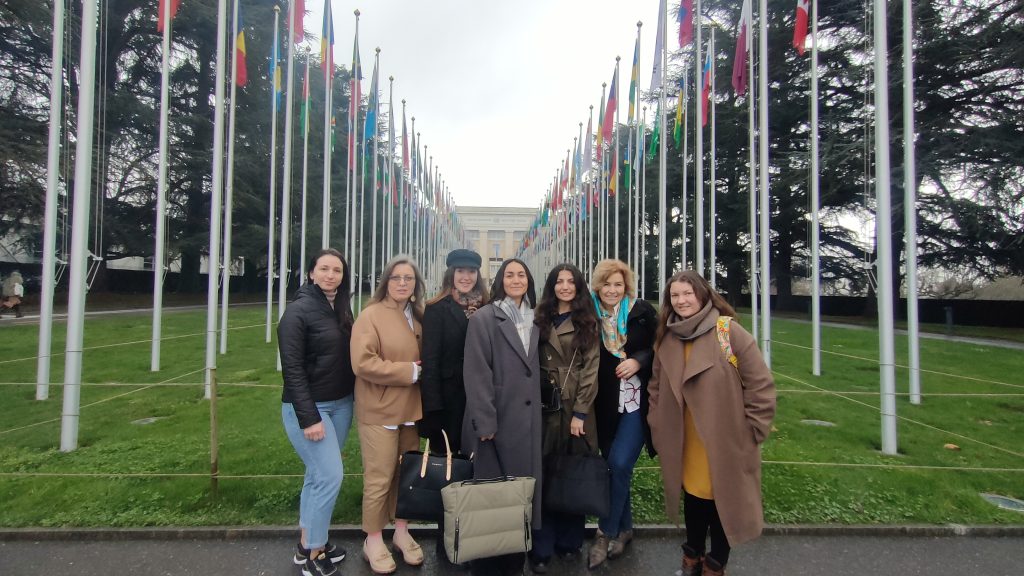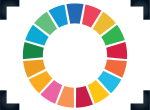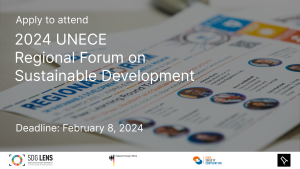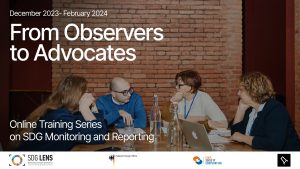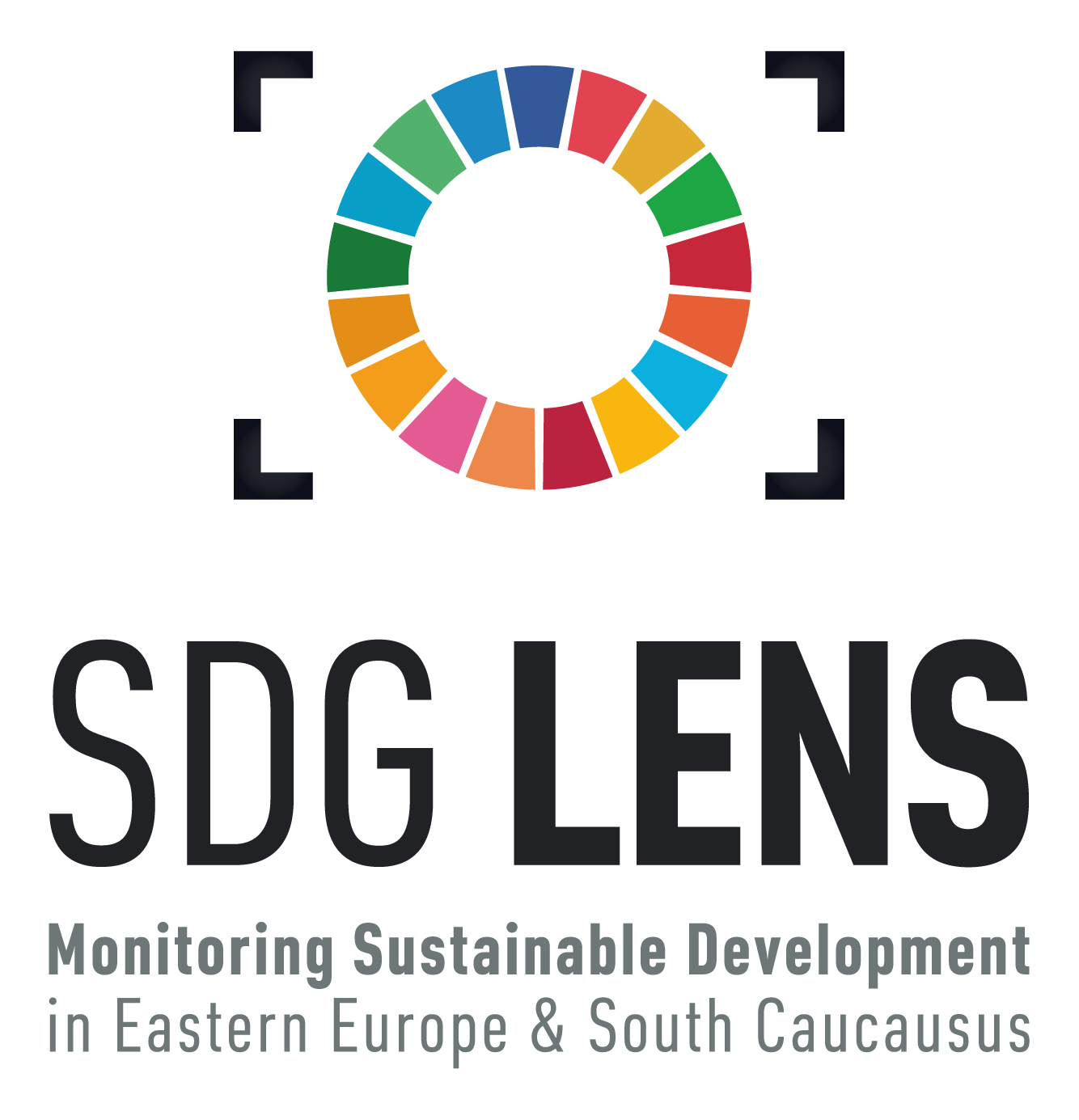The UNECE Regional Forum on Sustainable Development (RFSD), held on March 13th and 14th, brought together diverse stakeholders, with notable representation from the SDG LENS initiative.
ECE-RCEM Civil Society Forum
Preceding the official proceedings, the Civil Society Forum titled “Pathways to Progress: Regional Voices Driving the 2030 Agenda” on March 12th witnessed active engagement from SDG LENS representatives. Throughout the day, civil society members and youth representatives from the region delved into crucial discussions surrounding the progress of the 2030 Agenda. With a keen focus on various aspects, participants explored the preparations for the Summit of the Future and scrutinized the engagement processes in Voluntary National Review (VNR) countries, including SDG LENS voices from Georgia and Azerbaijan.
Sopiko Babalashvili and Lala Safarli provided valuable insights into the ongoing participation of civil society in their countries’ preparations for the voluntary national review session. Supported by SDG LENS, civil society representatives played a crucial role in formulating statements that encapsulated regional perspectives. These statements, delivered at both the forum’s opening and closing sessions, encompassed a broad spectrum of proposals and recommendations aimed at tackling pressing regional issues.
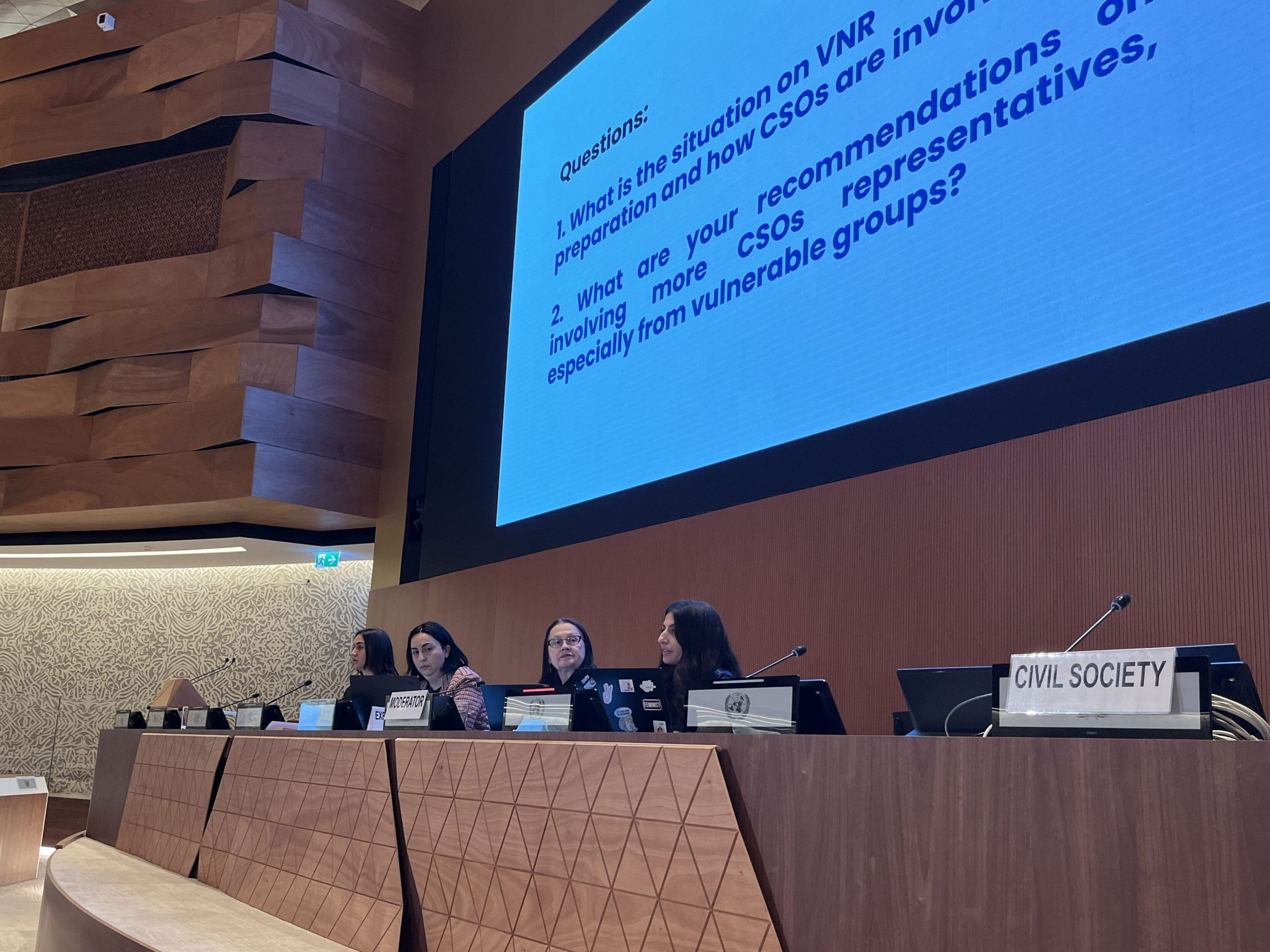
RFSD Round Tables
Throughout the RFSD, participants engaged in focused roundtable discussions on various Sustainable Development Goals (SDGs). Iryna Ponedelnik, an active expert and member of the SDG LENS network representing Belarusian civil society, presented the civil society statement on the Round Table SDG 13 “Solving the Rubik’s cube of the planetary crisis: lining up policy solutions for climate risks and biodiversity loss”. The round table focused on the importance of strengthening preparedness to climate extremes through multi-hazard early warning systems, and on holistic policies that simultaneously address both the biodiversity and climate crises. Iryna passionately advocated for urgent action to combat the effects of climate change, emphasizing the need for government intervention to achieve SDG 13 as strategies created at the national level very often remain “on paper,” without leading to concrete improvements at the local level.
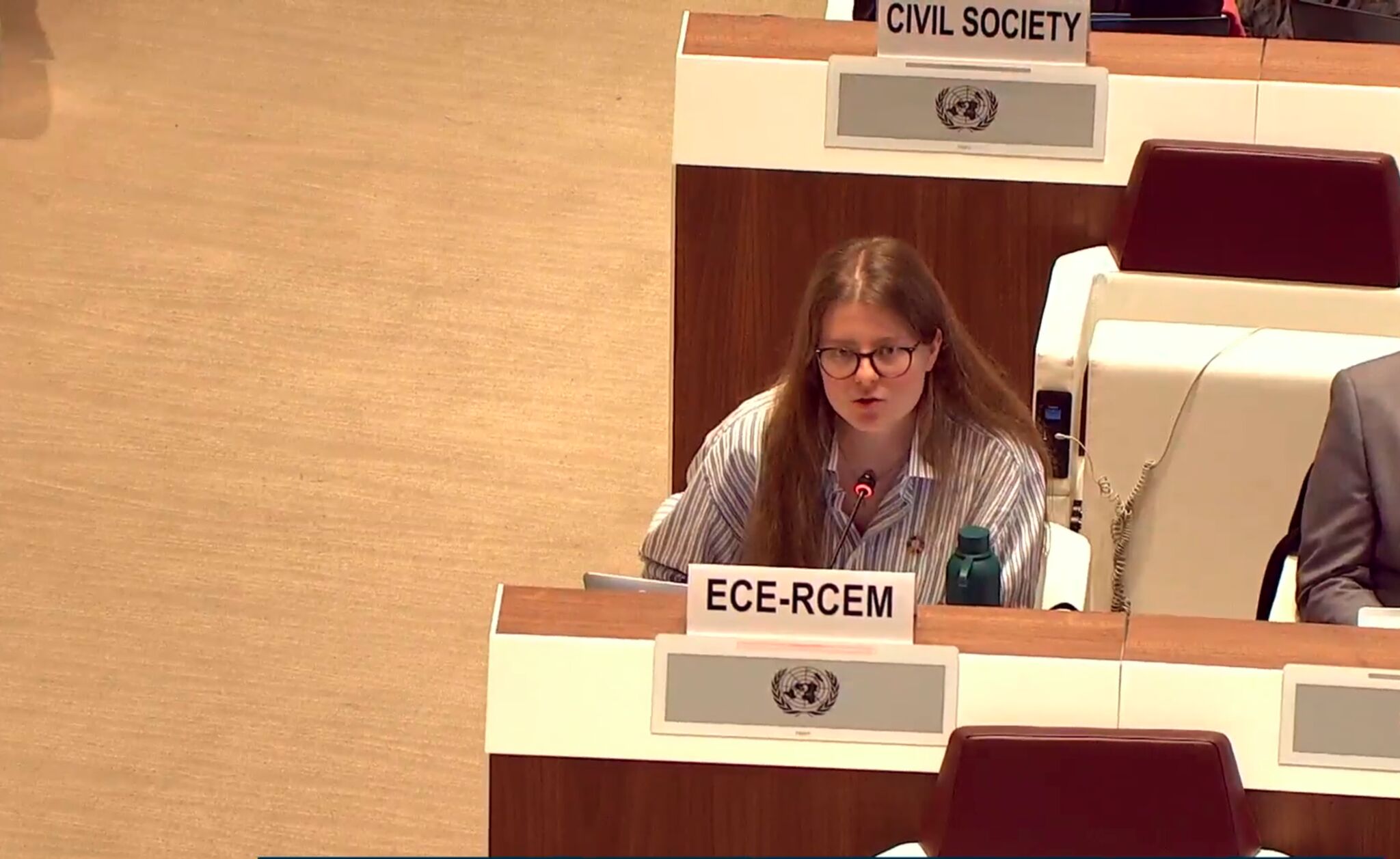
Lala Safarli, from the Azerbaijani women’s empowerment organization SARA Movement, presented the statement at the roundtable on SDG 16 “Accelerating policies, partnerships and innovation for just, peaceful and inclusive societies in the UNECE region”. The round table aimed to identify and reinforce foundations of democratic and societal resilience reflect on addressing tipping points that can further create fragile imbalances and conflict risks, and generate innovative ideas that can further propel the region towards peaceful, democratic, digitally equipped, and people-centered societies. Lala highlighted the challenges faced by civil society, shedding light on critical issues affecting the region and that achieving SDG 16 demands collaborative efforts between governments and civil society to ensure accountability, transparency, and participation.
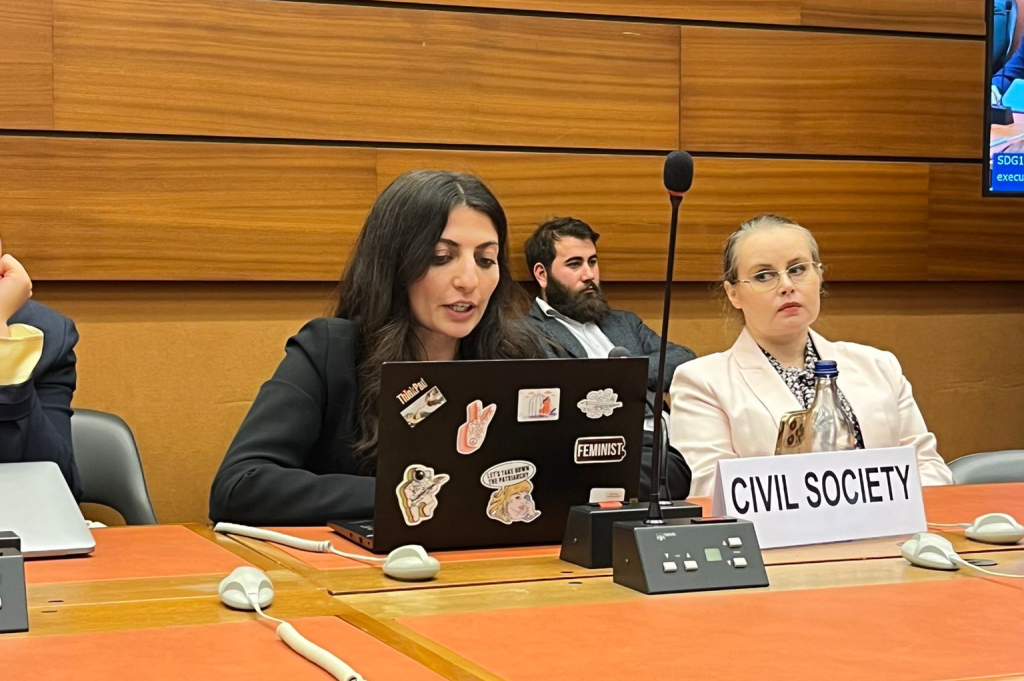
RFSD Side Events
Parallel events held alongside the forum provided additional avenues for discourse and were actively attended by representatives of the SDG LENS network. Moreover, SDG LENS together with Action for Sustainable Development co-organized a side event “Inclusive VNRs 2024: How can the VNR process enable diverse civil society perspectives on the progress of the SDGs?”. At this event additionally Melano Tkabladze expert from the Caucasus Environmental NGO Network from Georgia, a representative on the SDG LENS network, delved into the intricacies of preparing VNRs, shedding light on unique national approaches during the side event.
Additionally, Sopiko Babalashvili another expert representative of CENN Georgia and SDG LENS network engaged in the side event “Democracy education for democratic societies” organized by Bridge 47. The event discussed why when political rights and civil liberties are in decline youth so dissatisfied with democracy and how can civic and democratic leaders bring them back into the fold. Sopiko provided insights from Georgia on the meaningful involvement of youth in democratic processes.
The RFSD facilitated both formal and informal interactions between participants and decision-makers. Notably, Lala Safarly engaged in a dialogue with Belen Sanz Luque, the Regional Director of UN Women Europe and Central Asia, effectively showcasing her organization’s efforts and providing insights into Azerbaijan’s progress. Informal receptions allowed participants to engage with key figures, including newly appointed secretaries and other state representatives.
The success of the RFSD was underscored by the robust engagement of civil society with the support of SDG LENS, demonstrating their proactive role in shaping discussions, advocating for change, and fostering dialogue with decision-makers. As the global community continues its journey toward sustainable development, forums like these serve as indispensable platforms for collaboration, innovation, and the exchange of ideas. Moving forward, continuing capacity-building initiatives such as SDG LENS and sustained efforts to amplify civil society voices will be essential in realizing the ambitious goals outlined in the SDGs.
